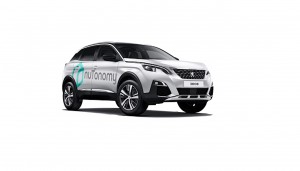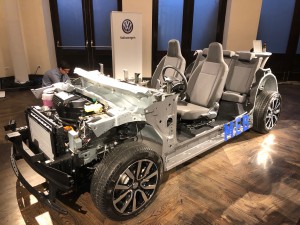Germany’s car industry is tracking to invest more than $68 billion in new technology for next three years on electric cars and automated driving, the head of the VDA, the association that represents German carmakers.
“We will invest over 40 billion euros in electric mobility during the next three years, and another 18 billion euros will be invested in digitization and connected and automated driving,” VDA president Bernhard Mattes said in a statement on Saturday.
The investment, however, also entails considerable risk.
Carlos Tavares, the chief executive of the French carmaker PSA, warned in an interview published by Le Figaro that the EU’s plans to slash carbon dioxide emissions from vehicles and push carmakers to go electric will threaten 13 million jobs in Europe’s auto industry while benefiting Asian companies.
(Porsche electrifying next-gen Macan. Click Here for the story.)
The European Parliament and EU countries struck an agreement in December to cut emissions from cars by 37.5% by 2030, compared with 2021, and by 31% from vans.
“This jeopardizes the jobs of 13 million people in the industry and could destabilize some of our European societies,” according to Tavares, who also heads the European Automobile Manufacturers’ Association.
Tavares welcomed Franco-German plans to boost Europe’s electric car battery industry and to reduce EU carmakers’ reliance on Asian rivals by building two new battery factories.
However, he noted that key suppliers such as Robert Bosch GmbH have studied the project and considered it was not profitable. He said PSA had also looked into it, but the initial capital costs were huge and localizing the battery industry may be difficult within current European Union regulatory constraints.
(Plugging in: An inside look at the MEB – VW’s platform for an electric future. Click Here for the story.)

PSA Group is partnering with nuTonomy to develop autonomous vehicles. They will test the Peugeot 3008 in Singapore.
“If European carmakers do not sell enough electric vehicles by 2020, 2025 and 2030, they will be ruined by fines. This forces us to reserve significant volumes of batteries with Asian suppliers, who are awaiting us with a big smile,” Tavares said.
The range of electric car models from German manufacturers would treble to around 100 in that period, VDA noted “The ramp-up of electric mobility is coming in Europe,” VDA said ahead of the Geneva International Motor Show, which opens this week.
“Without it, the EU’s CO2 targets cannot be achieved by 2030,” said Mattes, who also called for what he described as “appropriate regulatory” conditions across Europe.
Germany, together with a few other major European economies, is set to have a much higher share of electric vehicles among its new registrations than the EU average, he said.
(To see more about American views on electric vehicles and the future, Click Here.)
Mattes also said the charging infrastructure for electric cars must be expanded and incentives offered to buyers of e-cars.


